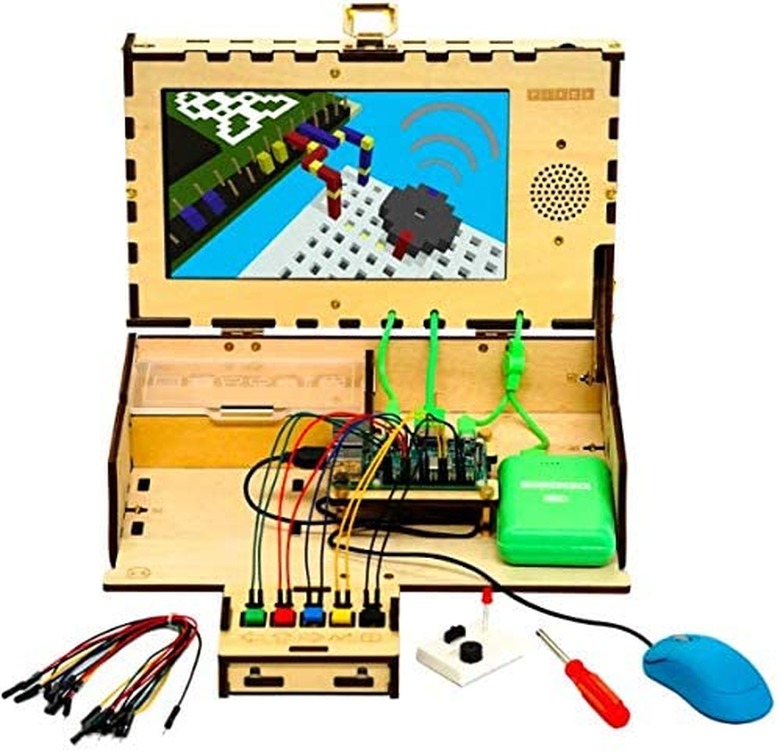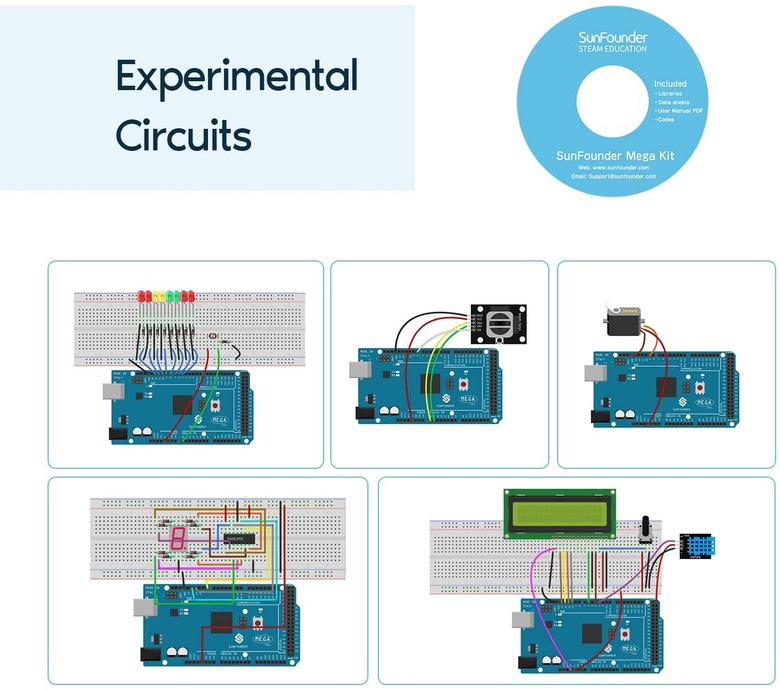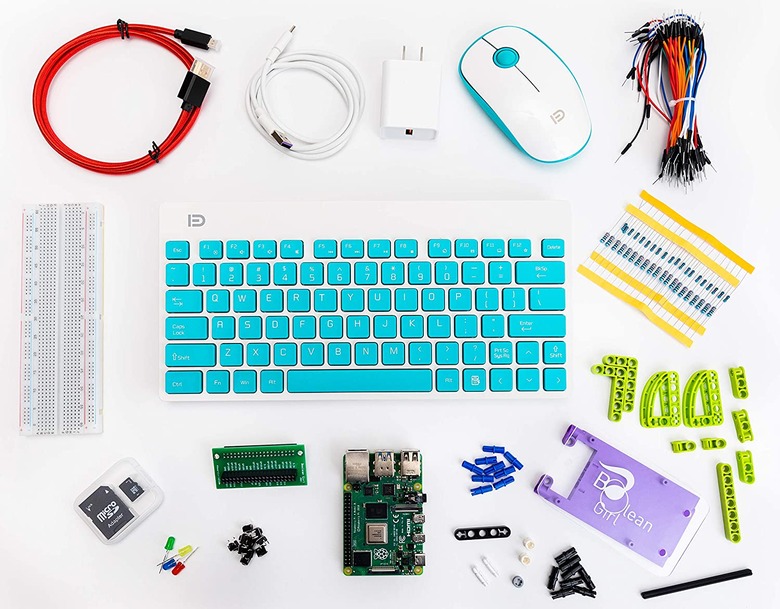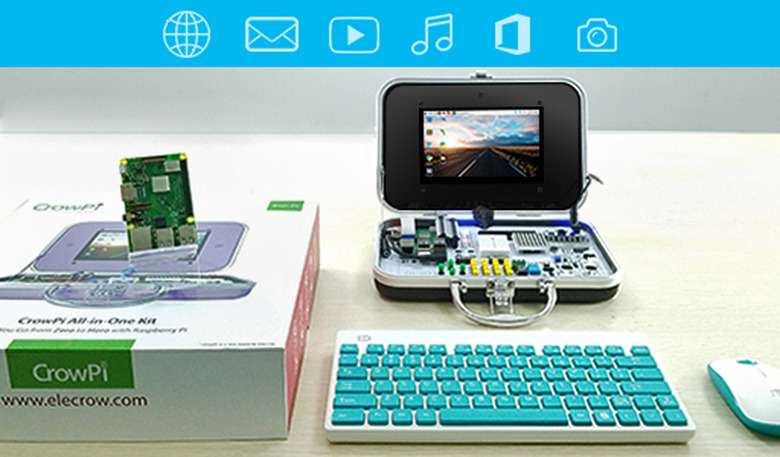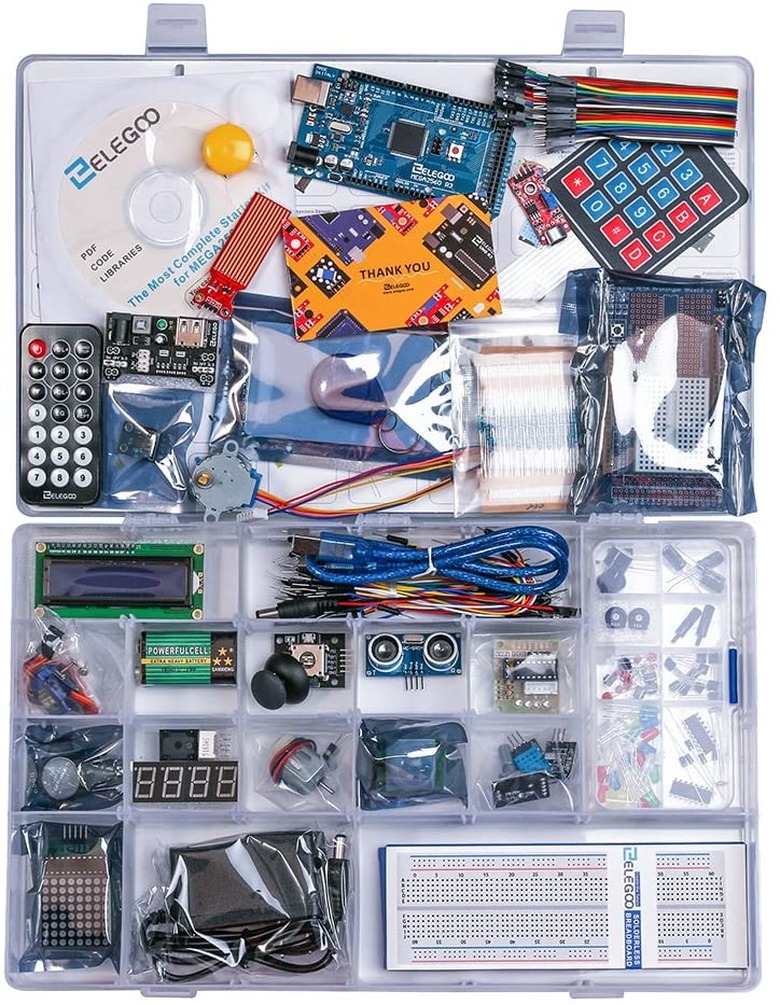5 Computer Kits To Inspire The Little Programmer In Your Life
We may receive a commission on purchases made from links.
Sciencing may earn compensation through affiliate links in this article.
Building your own computer might seem like a pretty daunting task for a teenager (or especially for a younger kid), but thanks to devices like the Arduino and Raspberry Pi, it's much easier than you might think. Devices like these have really kick-started the DIY computer kit industry, with more options than you'd imagine for younger people hoping to learn how computers work and the basics of coding. If you're looking for a kid to help your kid get started with computer building, there are plenty of options available, generally requiring no knowledge and with detailed instructions to guide them through the process.
Piper Computer Kit
Piper Computer Kit
The US&ref=as_li_ss_tl'>Computer Kit from Piper is a build your own computer kit built around a Raspberry Pi, with a wooden body and including a 9 inch screen, an integrated speaker, a 7,800 mAh battery (good for about 5 hours use on a single charge), a USB mouse and over 20 electronic components to help you complete the build. The main task of the kit is building the computer – and it comes with blueprints to guide your kid through the process – using the Raspberry Pi CPU and the laser-cut wooden and acrylic pieces, but it doesn't stop there.
After going through the building process, kids can use the StoryMode and the integrated Raspberry Pi version of Minecraft to complete a secret mission, involving connecting wires and adding electronic components, as well as teaching problem solving skills on the way. It also comes with PiperCode, which is based on the drag-and-drop Blocky visual programming language, and the kit includes 11 challenges to help kids learn the basics of coding. From this point onwards, kids can play creatively, and even progress further in coding with the in-built Python support. It's intended for kids aged 8 and over.
SunFounder Mega 2560 R3 Project Super Starter Kit
SunFounder Mega 2560 R3 Project Super Starter Kit
The US&ref=as_li_ss_tl'>Mega 2650 kit from SunFounder is an Arduino-based DIY computer kit, focusing on electronics-style projects using the Arduino as a base but with coding built in around the more hands-on activities. The kit comes with over 200 components, including LEDs, resistors, an LCD screen, motors, an IR receiver, a joystick and much more. It comes with a CD to guide your kid through the process, including a PDF tutorial that goes into detail about how to complete the various projects.
The kit includes a total of 25 projects, which introduce various electronic components and teach important lessons about both electronics and coding. For example, an initial project involves attaching a series of LEDs to the included breadboard, and using the Arduino to create a "flowing lights" effect, where the lights illuminate and dim in sequence. Further projects include setting up the LED display and wiring up a servo. It's pretty advanced, though, so it's only recommended for ages 12 and over.
Boolean Box
Boolean Box
The US&ref=as_li_ss_tl'>Boolean Box is a Raspberry Pi-based computer kit, including lessons in coding, electronics and animation, designed as part of the Boolean Girl program (intended to inspire young girls to build and code) but suitable for both boys and girls. The kit includes the Raspberry Pi, a keyboard, mouse, SD card, wires, resistors, LEDs, a breadboard, circuits and support for WiFi. It also has a HDMI port so you can connect it to a TV. It's intended for kids aged 8 and over, with increasingly-difficult projects as your kid progresses.
The nature of the kit and the process of setting up the computer teaches important electronics skills on its own, but it's impressively well set up in terms of coding. As well as supporting Scratch, the simplified drag-and-drop coding language, it supports coding with Python and Java, giving it a lot of potential as kids get used to the structure of code and want to delve deeper. The SD card comes pre-loaded with the Raspbian OS, support for the coding languages and Minecraft's Raspberry Pi edition, which they can even modify themselves once they get to grips with Python.
CrowPi From Elecrow
CrowPi From Elecrow
[CrowPi](https://www.elecrow.com/crowpi-compact-raspberry-pi-educational-kit.html
The kit contains tons of projects, either built around Scratch or Python, with some of the projects being heavier on the coding and others being more like electronics projects. For example, by following the instructions, kids can learn everything from using the included buzzer as a notification sound to creating their own games using either language. The electronics-style projects include setting up a temperature and humidity sensor, and building your own fire alarm system.
Elegoo Mega 2560 Starter Kit
Elegoo Mega 2560 Starter Kit
The US&ref=as_li_ss_tl'>Mega 2560 Starter Kit from Elegoo is another Arduino-based DIY computer kit, coming with over 200 components and intended to teach kids aged 10 or over the basics of electronics and programming. The kit contains the Arduino, an LCD screen, wires, resistors, an active buzzer, LED lights, a photo-sensitive (i.e. light-sensitive) resistor, a breadboard, USB cable, tons of different sensors and more. The kit also comes with a CD that includes a PDF tutorial with 35 lessons for kids to work through, increasing in difficulty and building on previous knowledge.
Projects included with the kit range from setting up the LCD display module to using the board and a transistor to control a DC motor, right through to operating a range of sensors and a keypad with the kit. Of course, your kids will learn about coding through the process of working through the included lessons, but the value of this kit comes more in terms of electronics, because the projects give a good overview of a wide range of components and how they work.
Cite This Article
MLA
Johnson, Lee. "5 Computer Kits To Inspire The Little Programmer In Your Life" sciencing.com, https://www.sciencing.com/build-your-own-computer-with-these-educational-diy-computer-kits-13763825/. 31 March 2021.
APA
Johnson, Lee. (2021, March 31). 5 Computer Kits To Inspire The Little Programmer In Your Life. sciencing.com. Retrieved from https://www.sciencing.com/build-your-own-computer-with-these-educational-diy-computer-kits-13763825/
Chicago
Johnson, Lee. 5 Computer Kits To Inspire The Little Programmer In Your Life last modified March 24, 2022. https://www.sciencing.com/build-your-own-computer-with-these-educational-diy-computer-kits-13763825/

